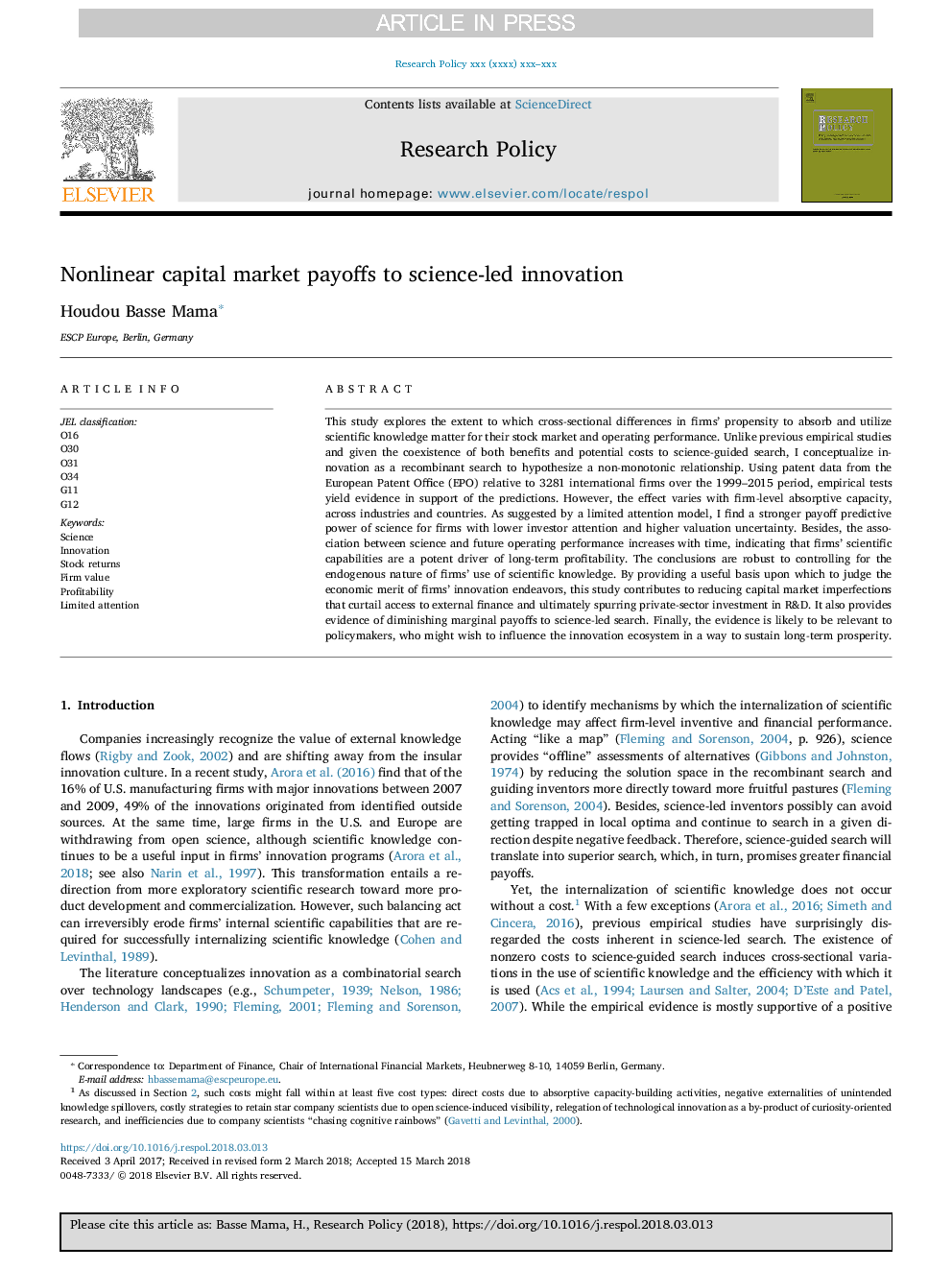ترجمه فارسی عنوان مقاله
دستمزد بازارهای سرمایه غیرخطی به نوآوری های علمی هدایت می شود
عنوان انگلیسی
Nonlinear capital market payoffs to science-led innovation
| کد مقاله | سال انتشار | تعداد صفحات مقاله انگلیسی |
|---|---|---|
| 99203 | 2018 | 12 صفحه PDF |
منبع

Publisher : Elsevier - Science Direct (الزویر - ساینس دایرکت)
Journal : Research Policy, Available online 22 March 2018

